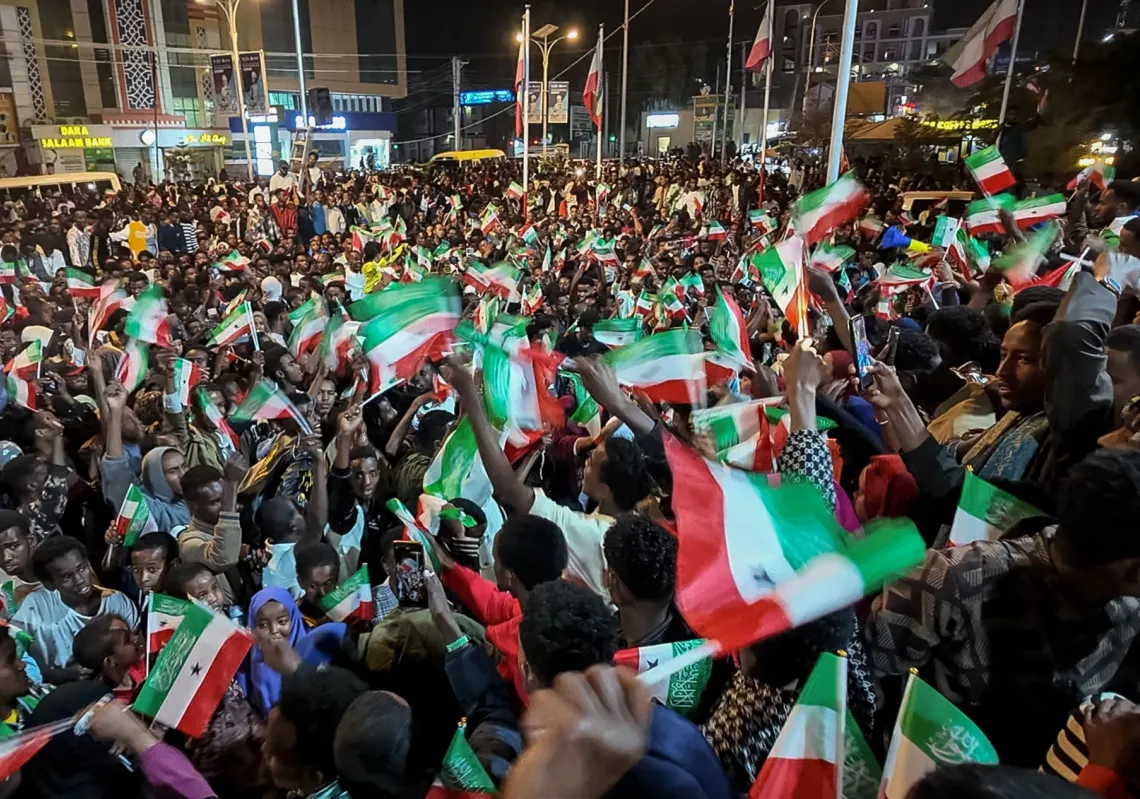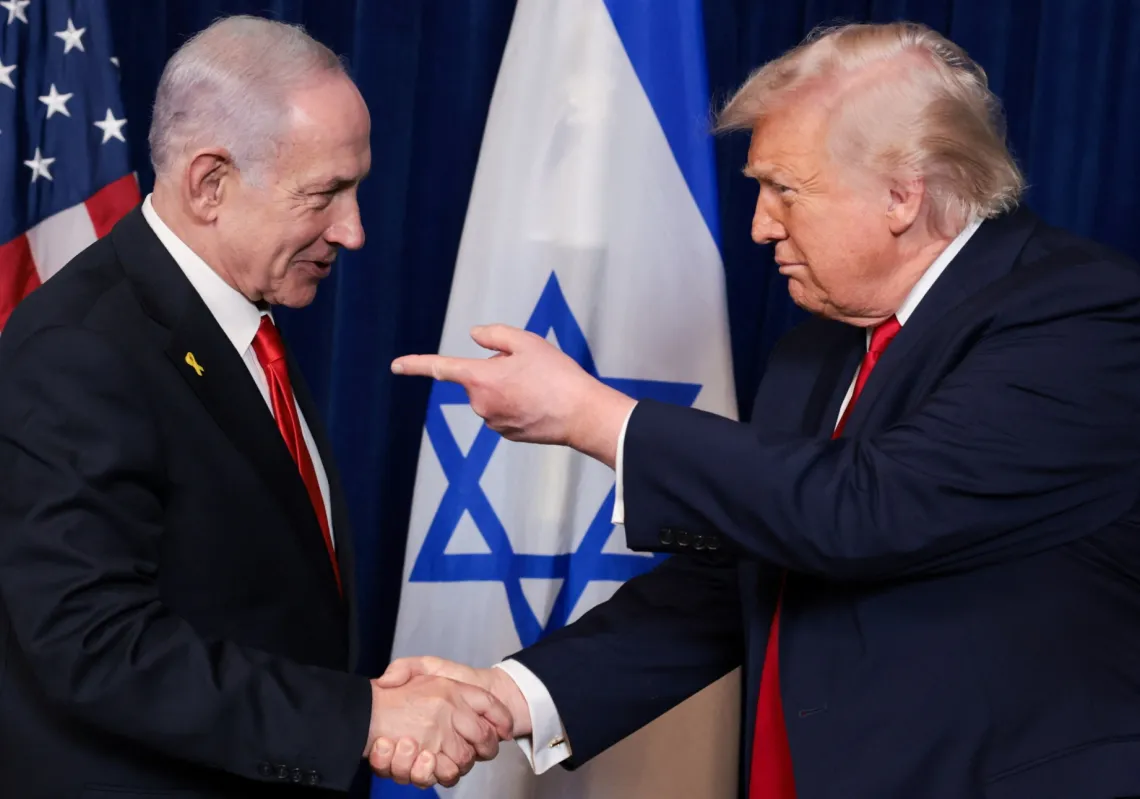The oversimplification that Hezbollah used to justify itself when the Egyptian authorities arrested one of Hezbollah members contradicts a host of political and legal facts, which are supposed to be known or discussed by the party's leadership. They must have done that before forming cells with military or security missions in other countries. The Hezbollah suspect was arrested on the charge of preparing for terrorist acts in Egypt.
Moreover, the justification made by Hezbollah on dispatching a member to serve as a "porter" for the Palestinians, according to a letter by the party's Secretary General Hassan Nasrallah, is harming the Palestinian cause and the Palestinians in general. The issue has been described as a lack of "manpower" as the party was looking for a way to convert its mistake to an achievement. Hezbollah wanted everyone to consider its deed as a simple matter that passed almost unnoticed, but for the bad intentions of the Egyptian government, which wants to serve Israel and the United States.
However, the issue presents a larger dimension and reflects deeper details. One of those dimensions is a comparison made by a number of non-official speakers of Hezbollah. They argued that the party's action resembled the secret military aid sent by Egypt to national liberation movements during the late President Gamal Abdel Nasser's period of rule.
But the holders of the comparison missed the very different political and historical contexts between the two actions, the one made by Nasser and the other done by the Lebanese party.
When Egypt helped the National Liberation Front of Algeria or Southern Yemeni rebels, or anti-colonialism factions in a non-African country with weapons, it was giving aid to forces that had widespread support among their people.
Nasserite Egypt has supported liberation fronts which fought a clear enemy and enjoyed an explicit international support led by the non-aligned countries. As within the international context, the support procedure was led by the Soviet Union and socialist countries supporting the resistance, which saw it as part of their struggle against imperialism.
The international scene is radically different today. Experts believe that it is legitimate to ask a question about the international side which could benefit from the smuggling of weapons across the Egyptian and Sudanese territories.
Moreover, the weapons go to a Palestinian faction that announced that it was rejecting general frameworks represented by the Palestinian Liberation Organization (PLO) and the Palestinian National Authority. The two bodies enjoy general international recognition.
Khaled Meshaal, head of the political bureau of Hamas movement, called for the formation of an alternative Palestinian body to replace the PLO, a few days after the cease-fire in the Israeli aggression on Gaza in January. However, he withdrew that proposal because of the violent reactions against it. Hamas is the same faction which is locked in an inter-Palestinian struggle. This struggle culminated in the seizure of the Gaza Strip by force in June of 2007. All efforts have not succeeded so far to quell that struggle. Providing Hamas with arms and money will escalate the Palestinian division much more. So, did Hezbollah realize that fact or simply ignore it to achieve political goals?
Here an important question arises: What is the fine line separating between efforts exerted to face Israel and confrontation that seeks to strengthen the grip of a certain faction on the domestic arena in the face of local opponents? Hezbollah should have realized the sensitivity of using weapons during internal fighting. It was Secretary General Hassan Nasrallah who raised the slogan "take up arms against local opponents to defend the weapons directed against Israel," during the Lebanese crisis, which broke up when the party stormed through the Lebanese capital in May 7 and 8 last year.
Analysts believe that sending arms to a field in a conflict that hovers between civil war and the inability to find a political solution, raises many questions. The Palestinian national project suffers a "coma", at best, almost dying, and ceases to exist. But this did not prevent reflecting on the idea of sending weapons to an area almost strangled by the Israeli blockade and the national crisis. So did the actions of Hezbollah add more to the confrontation?
We must also bring to light the method that Hezbollah used to handle the issue taking into consideration the time sequence of the major events in this case, according to Egyptian data and the letters of the secretary-general of the party.
Work has begun on forming the cell or "Egypt's office" in 2005. It is the same year which witnessed the withdrawal of Israeli forces from the Gaza Strip, implementing the plan of the "disengagement process" designed by former Israeli prime minister Ariel Sharon. This date could indicate that the party has decided to intensify its activities in the occupied territories, with the possibility of turning the strip towards a different allegiance which receives support of Hezbollah and its supporters via Egypt.
The work of the office has continued until its main element was arrested in November 19 of last year.
In December 27, Israel launched its war on Gaza. A few days later, Nasrallah called on the Egyptian armed forces and the Egyptian people to "pressure" their regime, and the Egyptian regime considered the call as an invitation to incite violence and military coup against it. In the first week of April, the Egyptian authorities announced the arrest of a cell that was planning to carry out terrorist acts in Egypt, in addition to spreading the Shiite doctrine.
The strong-worded speech by Nasrallah to the Egyptian authorities during the war in Gaza came after more than a month following the arrest of the Lebanese member of Hezbollah in Egypt. Analysts note that Nasrallah made a double mistake here. Instead of resorting to search for quiet solutions to the case of its activist – the party delivered what could amount to verbal abuse to the authorities in Cairo, without taking into account the reactions of Egypt.
The second mistake was Nasrallah believing that a mixture of the leader's charisma who "defeated" Israel in the year 2006, or rather his popularity in the Arab world, as well as a few of the hype and using Arab shame from the spelled Palestinian blood in Gaza and general Arab failure to support the Palestinian people during their recent crisis, may succeed in discouraging the Egyptian regime from taking punitive or retaliatory measures against the detained activist and against the party in general. It is easy to note the failure of this approach, especially after the significant shift in Arab mood, and the rise of sectarian sentiments, which Hezbollah and its conduct helped to raise during the Lebanon crisis.
The Egyptian side was plagued by the inability to find a suitable response to deal with the case.
Resorting to escalated media campaigns, getting close to a vulgar media language and spreading insults is not a sign of integration in the response to what has been said as an external security threat to the stability of Egypt.
It might be quite understood to see the Cairo authorities and security see what exceeds the activity of a local Lebanese party. The authorities also hinted to the presence of Iranian motives which are interrelated with local motives that move the threads of the cell case. But this is not enough to explain the excessive verbal war that spread to several sides, countries and parties, and fuelled the flames of Arab and regional tensions.
Egyptian authorities have avoided dealing with a set of facts in their possession, perhaps for fear of being accused of neglecting the Palestinian cause or not providing adequate assistance to the Palestinians. The issue revives the subject of opening and closing the Rafah crossing during the war in Gaza.
Some people believe that it is possible to defend the Egyptian stance as a sovereign state which has signed a peace treaty with another country. Egypt has also the right to control its borders and security and it is not obliged to provide justifications for its behavior towards the Palestinian issue. The same issue is subject, from its point of view, to higher Egyptian political considerations and necessities and not vice versa. To put it differently, Egypt can not accept that another party or foreign leader defines its political and security strategy.
The feelings of embarrassment towards the Palestinian issue are the space in which that Arab dilemma stands out in the relationship between the national and the regional, and the boundaries between the two. The Hezbollah cell in Egypt is only a sample that this sensitivity has not disappeared yet.
On the other hand, the recent crisis reveals a problem about sizes and roles. It makes it difficult to simply say that Hezbollah, or the side behind it threatens the security of Egypt without questioning the reasons that led to that.








